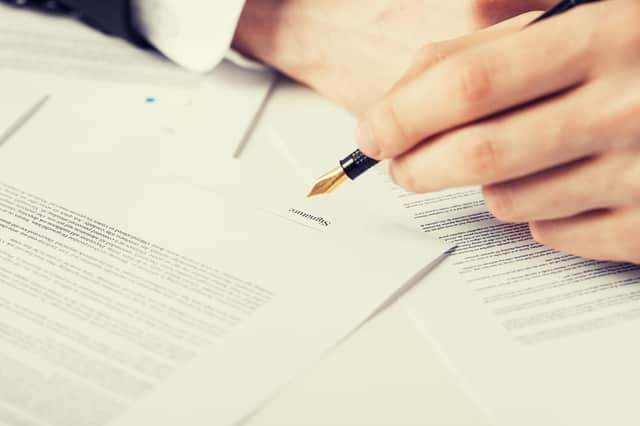These are your employment rights if you are forced to quarantine on return from holiday


This article contains affiliate links. We may earn a small commission on items purchased through this article, but that does not affect our editorial judgement.
People have started jetting off on holiday again after flights resumed to a number of popular destinations in June and July.
Several tourist hotspots are included in the UK’s travel corridor list, allowing people to go on holiday without having to self-isolate on their return home.
Advertisement
Hide AdAdvertisement
Hide AdHowever, the UK has reintroduced a 14-day quarantine for visitors returning from Spain after a recent spike in cases of the virus in the country.
This means that people already holidaying there will have to quarantine on their return.
But what are your employment rights if you have to self-isolate for 14 days after coming back from Spain - or any other country where a quarantine is imposed again?
Here’s what you need to know.
What are my employment rights?
Workplace advisory Acas explains if you have to quarantine on return from your holiday, the rules may depend on your working situation.
Advertisement
Hide AdAdvertisement
Hide AdIf your role allows you to work from home, then your work may not be affected if you have to self-isolate.
However, Acas explains: “If an employee cannot do their job from home, they may need to take extra annual leave to cover the 14 days of self-isolation. In some cases, this might mean their annual leave request is refused.”
However, employers can consider other options, including putting an employee on furlough for the time they're self-isolating, if both parties agree.
It’s worth noting that employees and workers “are not entitled to Statutory Sick Pay (SSP) if they're self-isolating after returning to the UK and cannot work from home,” adds Acas.
Advertisement
Hide AdAdvertisement
Hide AdHowever, an employer can choose to pay an employee SSP - or a higher rate of sick pay - if they choose to.
What happens if I’m already on holiday when quarantine rules change?
Many holiday makers were already in Spain when the UK Government ordered a 14-day quarantine for returning visitors from 26 July, as a result of a spike in cases in the country.
Alan Price, CEO of BrightHR, explains that “Employers who currently have employees in Spain or its islands should get in touch with them on their return to ensure that they understand the need to self-isolate and to agree with them how the absence will be covered bearing in mind SSP is not applicable.”
Mr Price adds that if employees can work from home, this is likely to be the most favourable option. If this isn’t possible, employers may consider:
Advertisement
Hide AdAdvertisement
Hide Ad- Paying full pay
- Paying the equivalent of SSP (this cannot be claimed back from the SSP Rebate Scheme)
- Paying contractual sick pay
- Agreeing on further annual leave
- Enforcing annual leave by giving the required amount of notice (double the length of the holiday being enforced)
- A period of unpaid leave
- A period of furlough
Danielle Parsons, an employment lawyer at Slater and Gordon, said: “Those returning from Spain, who have suddenly discovered they have to quarantine are in a very weak legal position as their bosses don’t have to give them time off if they are unable to work from home.
“If you’re able to explain this to your employer they could offer you the chance to take annual leave or unpaid leave.